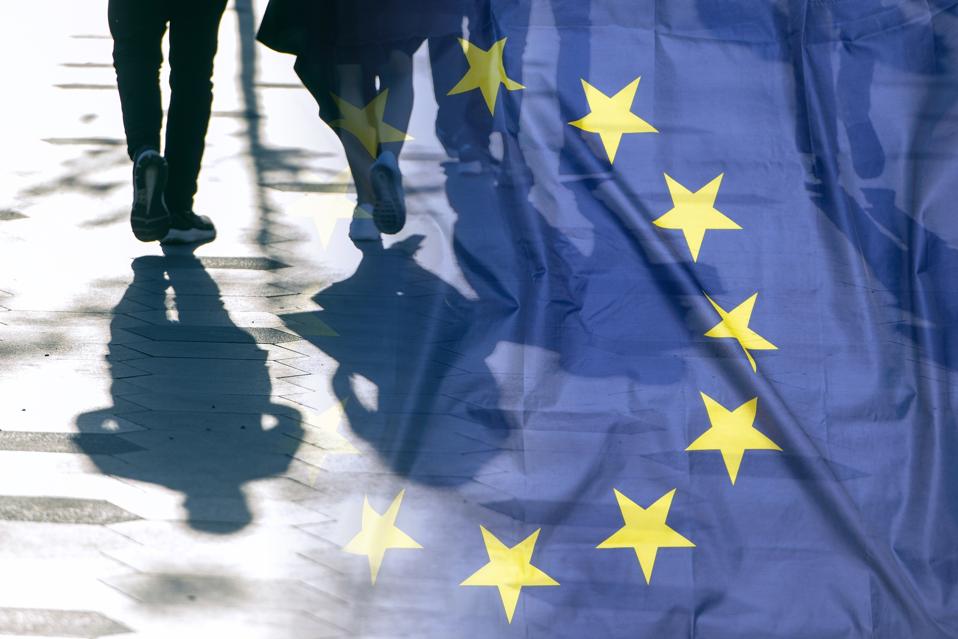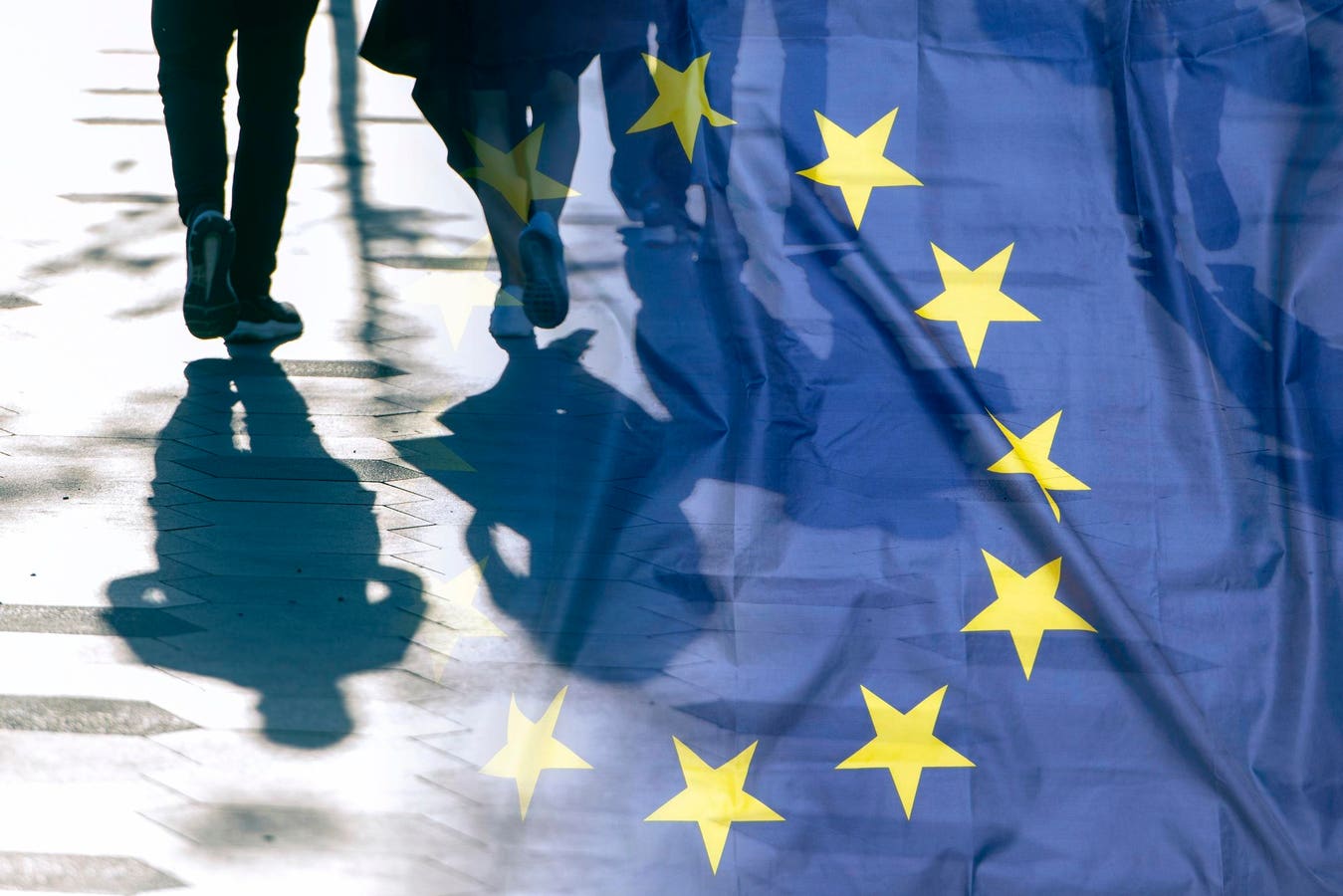
EU or European Union Flag and shadows of people
getty
On October 13, the Legal Affairs Committee of the European Parliament approved a compromise to reduce sustainability reporting requirements. The compromise was in line with proposals previously adopted by the Commission and Council. With an expected fast-track approval in the Parliament, the final changes were expected to be adopted by the European Union by the end of the year. However, a last minute stand by the Progressive Alliance of Socialist and Democrats delayed the Parliament’s vote until November, upsetting the EU’s timeline and adding uncertainty.
As part of the European Green Deal, the EU adopted a series of directives to force businesses to address climate change and report greenhouse gas missions. The CSRD created requirements for businesses to report GHG emissions and other environmental, social, and governance actions. The CSDDD created additional reporting requirements, as well as legal liability, for companies in relation to their supply chain.
However, the cost of these proposals on businesses and the possible impact on the EU economy became a theme during the 2024 elections. The shift to the right in EU politics embolden opponents to the European Green Deal directives. As a result, the Commission proposed a package of new directives to “reduce the burden” on businesses. The Omnibus Simplification Package was officially adopted by the Commission in February.
Once legislation is proposed by the Commission, the Parliament and the Council adopt positions. In the Parliament, the process is a typical legislative process with committees and members proposing amendments. The Council engages in negotiations behind closed doors, only releasing periodic updates. After all the three adopt positions, they enter into a “trilogue” to negotiate the final directive.
In the Parliament, the debates have been public and contentious. In June, the European Parliament’s Committee of Legal Affairs known as JURI, met to discuss initial proposals. At the time, sustainability advocates were optimistic the Parliament would take a more neutral approach. However, the proposal aligned with the Council’s position.
Left leaning parties were adamant the CSRD and CSDDD should face little reforms. Positions from other committees called for minimal changes. Far right parties called for the full abolition of sustainability reporting and a dismantling of the European Green Deal. In early October, the European People’s Party, the majority party leading the negotiations, released two proposals. One closely aligned with the Council’s proposal. The other was aligned with the far right. Given the choice of compromise or total failure, left leaning parties caved, meeting the EPP’s demands and cutting off the far right’s agenda. On October 13, JURI formally adopted a compromise position.
Given the coalition needed to approve the compromise in JURI, the proposal appeared set for a quick approval. However, on October 22, the Parliament rejected the proposal to enter into negotiations with the Commission and Council. The vote was 309 for, 318 against, with 34 abstaining. The delay reopens internal negotiations within the Parliament, adding even more uncertainty to an uncertain process.
In a statement, MEP Jörgen Warborn, lead negotiator said “The EPP Group has demonstrated great flexibility and made substantial compromises to reach an agreement with the platform groups to enter into interinstitutional negotiations for the so-called Sustainability Omnibus. Unfortunately, S&D MEPs challenged the negotiation mandate. Given today’s tight vote in plenary, their support could have made the decisive difference. It is now for the S&D Group to clarify its position and explain its commitment.”
Looking to the EPP’s overall goal of reducing regulations. Warborn stated, “today’s outcome will not deter us from our goal to reduce unnecessary bureaucracy and deliver tangible results for European companies. Strengthening competitiveness, cutting costs and creating the right conditions for businesses to thrive remains our priority. Businesses need clarity, it would have been very important to give this clarity today. But we are committed to find a new solution in November.”
For now, the future of the CSRD and CSDDD is, yet again, unclear. The EPP will regroup. Rather than wait on the S&D, they may choose to align with far right groups, advancing the alternative proposal that guts sustainability reporting. The next vote will be November 11 -13.
